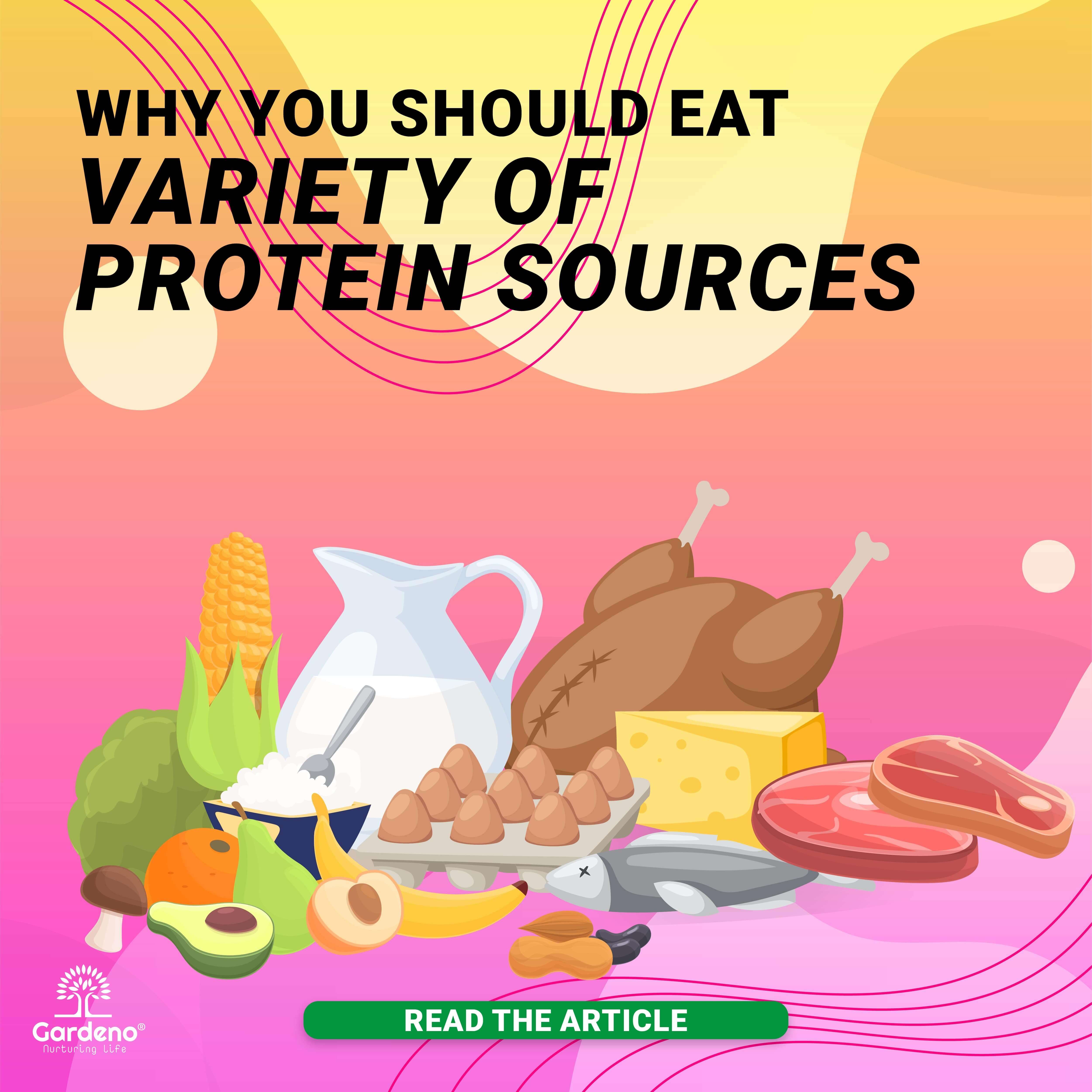

Why Eating a Variety of Protein Sources Matters
The human body needs protein to function effectively. Protein helps with cell growth and cell repair. Protein is also needed to make sure that the body functions properly. Protein is made up of things called amino acids. Unfortunately, our bodies don’t store amino acids. To compensate, we either create them or convert them. However, there are nine amino acids called the essential amino acids that we can’t produce.
These amino acids are received from food. Protein helps with tissue growth and maintenance. It’s especially important in certain periods like infancy and childhood. Expecting mothers to need an increased amount of protein. According to the institute of medicine, the recommended amount of daily protein is 0.8 grams per kilogram of body weight.
Protein deficiency could lead to many serious health problems like:
- Loss of muscle mass
- Weakened immunity
- Heart problems
- Respiratory issues


A healthy and balanced diet with plenty of lean meats, legumes, and dairy can help you achieve your daily protein goals. However, having protein dietary supplements can help if you have issues getting your daily protein requirements. Vegetarians, in particular, should consider adding dietary supplements that have a high protein content.
Proteins come in many shapes and forms. They could either be variations of animal meat or plant-based proteins. Plant-based proteins don’t have all the essential amino acids like animal proteins. So, adding protein dietary supplements is useful in certain cases.
There’s a reason why experts recommend getting your protein from various sources instead of just focusing on one type of protein. Animal proteins tend to be high in methionine which is useful for growth but also has been linked to cancer cell growth. Increasing intake of plant-based protein can help offset the excess methionine consumed.
Having a variety of protein sources also helps break the monotony of the food. Unless you enjoy eating grilled chicken breast every day, having a mix of protein helps make your food nutritious and interesting. Certain food categories like legumes offer nutrients other than just protein, making them a better option in some cases. Legumes contain magnesium, copper, and B complex vitamins which are part of the daily supplements that everyone should take.
Plant-based proteins are generally better for you as they contain additional nutrients that might not be present in animal proteins. Legumes, nuts & seeds whole grains, and many fruits and vegetables are great sources of proteins. Protein dietary supplements are usually plant-based and can offer the required protein in a condensed package.
Animal proteins are called complete proteins since they usually contain all the essential amino acids. Protein from poultry like chicken and seafood is generally the healthiest form of protein. Eggs are a good alternative for those who don’t eat meat. Red meat is fine in small amounts and should be avoided as a primary source of protein. Processed meat should be avoided almost always.
Protein comes in a variety of ways. Both animal and plant-based proteins have different advantages. To best take advantage of the benefits of each, a balanced diet should contain plenty of plants and animal-based protein. If you feel like you’re not getting enough, adding plant-based protein dietary supplements can help you even out the parts of your diet that you are missing.



